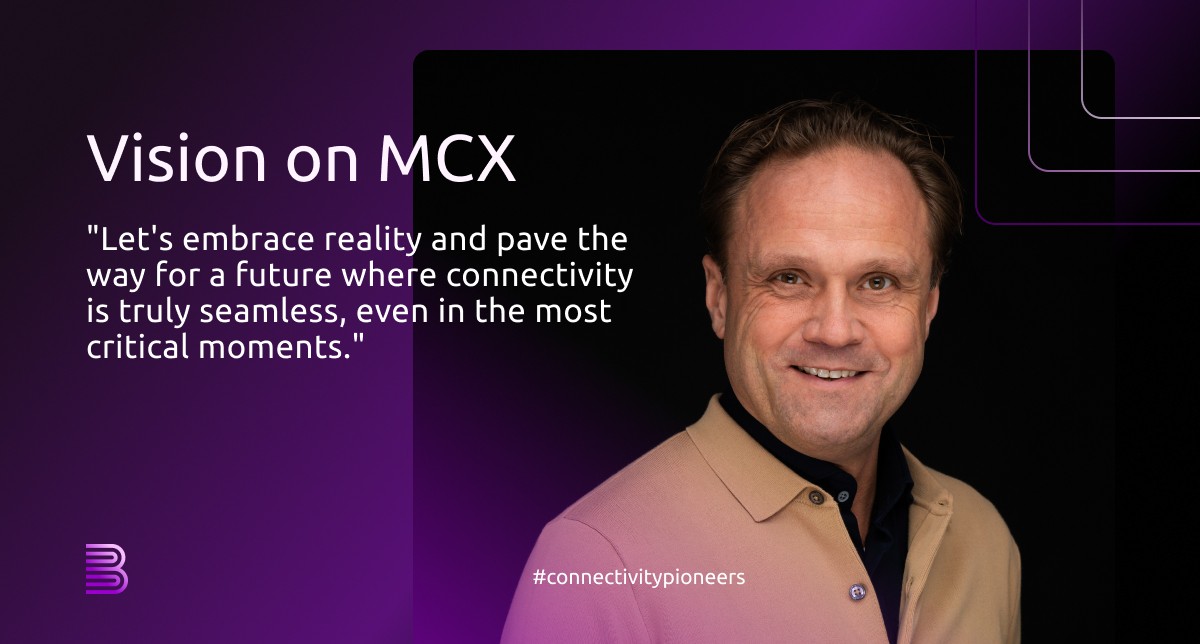
Are Public Mobile Networks Ready for Mission-Critical Communication?
Mobile communication: everything is interconnected, and hardly anything seems more natural than always having connectivity. Whether we message, app, stream, or call – it works seamlessly most of the time. However, occasionally, the connection is slow or even unavailable. Reduced coverage, and congestion due to events, network outages, or emergencies are just a few potential causes. For some, this is merely a minor inconvenience but for others, like First Responders, this may lead to significant problems.
Mission-critical communication (MCX) for First Responders encompasses features such as Push-to-Talk, video, and data communication, with the premise that high availability is achievable under all circumstances and via the public mobile network.
Was it just time for something new?
The reasons for switching from the over-30-year-old Tetra technology to MCX aren’t always evident. At times, it seems like we’re at a party hosted by various vendors promoting this new technology. But let’s face it: how attractive is it to exhibit a 30-year-old, proven technology at yet another expo? Hence, it’s time for a fresh approach. Let’s embrace MCX!
Undoubtedly, there’s significant effort being put into developing the MCX standard and conducting Plug Tests. The expectations for this new technology are after all sky-high. It promises to offer mobile communication streamlined through one device using the public network (or a hybrid system), featuring diverse priority mechanisms and, almost seamlessly, offering national roaming across all mobile operators in the country! Everything is being thrown into the mix, and anything seems possible. Many consultants are tirelessly presenting their truths as the ultimate truth, and, admittedly, it sounds quite convincing.
However, I can’t help but conclude that the realism surrounding MCX is distant, and the numerous promises around it are currently mostly inside PowerPoint Presentations and not so much in reality.
The illusion surrounding MCX
Why am is saying this? Well, the technology behind MCX is still under heavy development, and there’s a huge discrepancy between what public operators can do and are willing to do with their mobile networks to implement the envisioned MCX functionalities for such a limited user group. It requires substantial investments, and the business model is under scrutiny. Operators have full-time jobs sorting through all the RFIs and distinguishing sense from nonsense. There’s a mismatch between what MCX promises to deliver and what the public operator can and wants to offer.
The reality? Besides voice functionalities such as Push-to-Talk, First Responders (consumers and businesses alike) have an increasing need for data usage. This has nothing to do with MCX but is the reality of current mobile network usage. Yes, that same mobile network everyone else already uses. First Responders need to call colleagues and access various search systems, all through the 4G-5G mobile network. This currently happens alongside the Tetra radio for communication with the control room because this communication link must always function, under all circumstances. However, that principle is an illusion too. After all: every network, whether fixed, mobile, or Tetra, experiences disruptions. And dare I say, this will only increase.
Facing reality and gaining experience for MCX
The reality is that First Responders already use (consumer) mobile phones alongside their Tetra radios. So, let’s ensure that their devices can indeed connect to all available mobile networks, and minimize the risk of coverage issues or interruptions. When we do this, this more robust mobile connection can also serve as a better fallback for Tetra, thereby gaining valuable experience with public mobile networks for Mission-Critical Communication. And it’s precisely this experience that can then be applied to the arrival of MCX, as it’s inevitable in 5 or 6 years…
In the meantime, let’s start gaining experience with mobile networks as backup provisions for Tetra networks. This will provide First Responder organizations with many insights and improvements. Beyond the illusion.

Visit backupsim.com to learn more about our role in facilitating reliable connectivity during critical moments.
